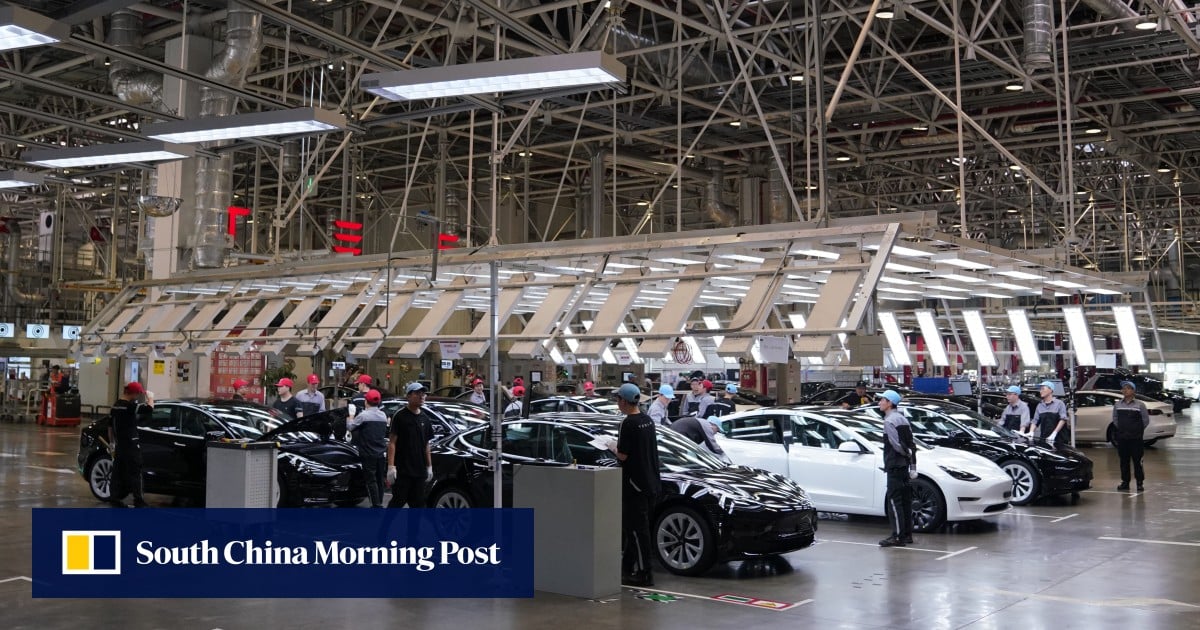


But two sales managers in Shanghai said “quite a lot of” colleagues had been made redundant in the past few days, after Tesla CEO Elon Musk told staff on Monday that the company was slashing its payroll by more than 10 per cent across its global operations.
According to Reuters, Musk informed employees of the lay-offs in an internal memo, with several US-based service centres strongly affected.
Some showrooms across China are likely to face closure as their sales teams shrink as a result of the job cuts, one of the sources said.
Tesla China declined to respond to queries about the lay-offs.
The Texas-based carmaker assembled 947,742 Model 3 and Model Y vehicles at its Shanghai plant last year, which represented 52 per cent of its global total.
On the mainland, the facility reported 603,664 deliveries in 2023, up 37.3 per cent from the previous year.
The other 334,078 Shanghai-made vehicles were exported to markets such as Germany and Japan.
“The Shanghai factory remains Tesla’s major production hub and it is understandable that the impact on production is limited,” said Gao Shen, an independent analyst in Shanghai. “But it remains to be seen whether a smaller sales team would affect Tesla’s sales in China.”
At present, the waiting time for entry-level Model 3 and Model Y vehicles to be delivered is two to six weeks, unchanged from a week ago, according to Tesla China’s website.
Deliveries by Tesla fell 20.2 per cent quarter on quarter to 386,810 units worldwide in the first three months of this year, according to a company statement earlier in April.
In mainland China, its deliveries between January and March dropped 3.6 per cent from the fourth quarter of 2023 to 132,420 units.
Tesla raised the price of its Shanghai-made Model Y cars on April 1, bucking the trend established by a discount war that is squeezing the profit margins of most of its rivals in China.
The basic Model Y saw its price rise 1.9 per cent to 263,900 yuan (US$36,454).
The company aims to deliver 20 per cent more electric cars in 2024, which would take it to 3.6 million units, chairman and president Wang Chuanfu told an investors’ conference at the end of March. That would be significantly slower than the 62 per cent growth it recorded in 2023.